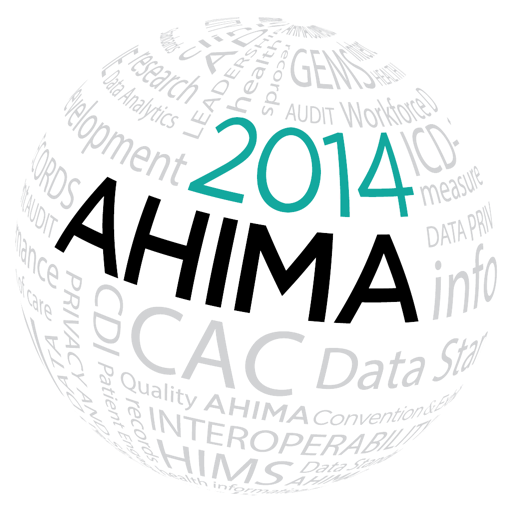Monday, September 29, 2014

This week the UT School of Biomedical Informatics is participating in the 2014 American Health Information Management Association (AHIMA) Convention and Exhibit in San Diego, CA. This 86th annual convention draws health information management (HIM) professionals, thought leaders and executives from all areas of health care and information management. Speaker highlights include Dr. Karen DeSalvo (National Coordinator for Health Information Technology) and Dr. Eric Topol, author of The Creative Destruction of Medicine. Both of these are “not to be missed.” However, many other topics will be discussed. One I’d like to focus on for this blog is information governance.

It is a current trend in health informatics and information management to develop data and information governance programs. Wikipedia defines information governance as “the set of multi-disciplinary structures, policies, procedures, processes and controls implemented to manage information at an enterprise level, supporting an organization’s immediate and future regulatory, legal, risk, environmental and operational requirements.” (“Information Governance”, 2014) Organizations have found these programs to be essential for the effective management of proliferating databases, software applications, and data sources. Cohasset Associates and AHIMA recently published the results of a research study on health care information governance where 65% of respondents in health care organizations recognized the usefulness of information on governance for managing information across functional areas, i.e., across clinical and research areas. (Cohasset, 2014) Only 43 percent of respondents had initiated formal data and information governance programs, while 11 percent of the respondents characterized their IG programs as mature, meaning they had “multidisciplinary direction and oversight; sponsorship for resources and funding; and leadership to engender organizational solidarity.”
Why is this important? It seems so, I don’t know, boring and difficult. Well, here are just a few of the things that health care will be hard-pressed to accomplish without information governance:
At SBMI we are including information governance and other exciting topics in our curriculum. Part of our stated mission is to use informatics to solve problems in health care, including problems such as data and information governance.
Information Governance. (2014) Retrieved September 24, 2014 from http://en.wikipedia.org/wiki/Information_governance.
Cohasset Associates, AHIMA. 2014 Information Governance in Healthcare: A Call to Adopt Information Governance Practices. Minneapolis, MN; 2014, 1-38.
written by Susan Fenton, PhD, RHIA, FAHIMA

Dr. Susan Fenton is the Associate Dean for Academic Affairs and Professor at McWilliams School of Biomedical Informatics at UTHealth Houston, formerly UTHealth Houston School of Biomedical Informatics (SBMI). She is a member of the American Health Information Management Association’s Council on Excellence in Education, and her research interests include workforce development, data management, ICD-10 implementation and health care associated infections.